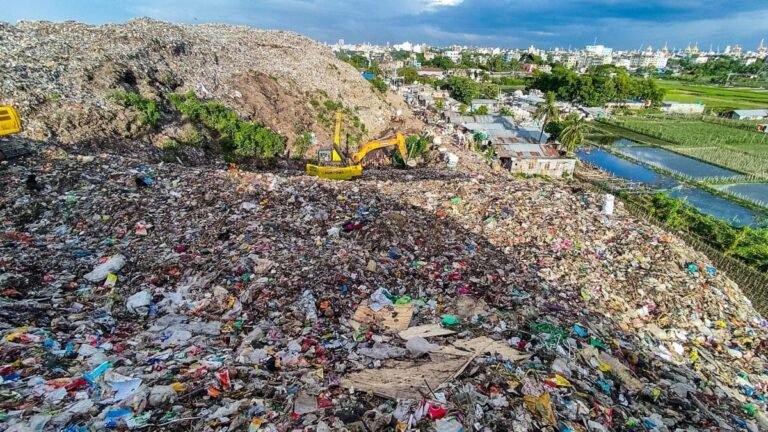Reducing waste in nature is one of the most impactful ways to contribute to a healthier planet. By making small, conscious changes in our daily lives, we can significantly reduce the amount of waste that ends up in natural environments, harming ecosystems. Here are five practical and easy tips to help you reduce waste in nature.
Choose Eco-Friendly Options for End-of-Life Planning
End-of-life planning is another area where we can consider waste reduction. Traditional burials often involve the use of non-biodegradable materials and chemicals that can harm the environment. Eco-friendly alternatives, such as green burials or cremation plans, can help minimize waste and reduce the ecological footprint of death care. Cremation, for example, takes up less space than traditional burials and can eliminate the need for caskets or vaults that do not biodegrade.
Embrace Reusable Alternatives
One of the most effective ways to reduce waste is by replacing single-use items with reusable alternatives. Single-use plastics like straws, cups, and bags are among the biggest contributors to environmental waste. These items often end up in landfills or the ocean, where they take centuries to decompose.
Opting for reusable bags, water bottles, and utensils can make a huge difference. When shopping, bring cloth bags instead of relying on plastic ones. Switch to metal or bamboo straws and use a durable, refillable water bottle. While these changes may seem small, they drastically reduce the volume of waste you contribute to landfills and ecosystems over time. Plus, using reusable items can save you money in the long run. By minimizing disposable products, you create less waste, which helps keep nature cleaner and healthier.
Practice Proper Recycling
Recycling is one of the most well-known methods of waste reduction, but many people aren’t recycling correctly. Not all items that seem recyclable are accepted by local facilities, leading to contamination of recyclable materials and making them unusable. To reduce waste in nature effectively, it’s essential to understand what can and cannot be recycled in your area.
Research your local recycling guidelines and educate yourself on the proper disposal of materials. Ensure you clean out containers before recycling them, as dirty materials can ruin the recycling process. Additionally, take advantage of programs that allow you to recycle special items like electronics, batteries, and light bulbs, which require more specialized disposal methods. Practicing proper recycling helps ensure that recyclable materials are processed efficiently and kept out of nature, reducing their harmful environmental impact.
Opt for Composting
Composting is a fantastic way to reduce organic waste and give back to nature. Food scraps and yard waste make up a large portion of the waste sent to landfills. When these organic materials decompose in landfills, they produce harmful methane gases, a potent greenhouse gas contributing to climate change. Instead of throwing away food scraps, consider starting a compost bin.
Composting allows you to naturally break down organic waste into nutrient-rich soil. Not only does this reduce landfill waste, but it also enriches your garden, promoting healthy plant growth. You can compost fruit and vegetable peels, coffee grounds, eggshells, and yard trimmings. Many urban areas also have community composting programs, making it easier for individuals living in apartments or small spaces to participate. By diverting organic waste from landfills, composting helps maintain cleaner ecosystems and reduces the environmental burden.
Minimize Food Waste
Food waste is a significant contributor to environmental pollution. Tons of edible food are thrown away every year, wasting not only the food itself but also the resources required to grow, harvest, and transport it. To reduce food waste, start by planning your meals more carefully and purchasing only what you need.
Store food properly to extend its shelf life, and learn how to repurpose leftovers to prevent unnecessary disposal. Freezing extra portions and using produce that’s close to expiring in creative recipes are excellent ways to minimize food waste. Additionally, donating unused or extra food to local shelters or food banks helps prevent waste and supports communities in need. By taking these steps, you can significantly cut down on the amount of food that ends up in landfills, helping to preserve the environment and reduce your carbon footprint.
Opting for a green burial ensures that your remains will naturally decompose and enrich the soil, without the use of harmful chemicals or embalming fluids. Additionally, some people choose biodegradable urns that can be planted with trees or flowers, creating a living memorial that benefits nature. Making sustainable choices in end-of-life planning is a thoughtful way to ensure your final impact on the earth is one that promotes growth and reduces waste.
By adopting these five tips, you can make meaningful changes that help reduce waste in nature. Whether through reusable alternatives, proper recycling, composting, minimizing food waste, or eco-friendly end-of-life choices, each action adds up to make a positive environmental impact. Small efforts from individuals can collectively create significant change, helping to preserve our planet for future generations.
